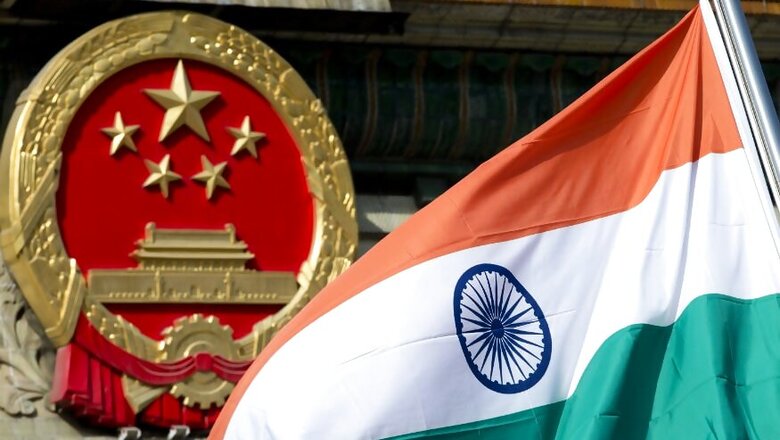
views
Days after Indian and Chinese troops were engaged in two fierce face-offs, India on Thursday said it remained committed to maintaining peace and tranquillity along the border with China noting that such incidents could have been avoided if there was a common perception about the frontier.
On May 5, around 250 Indian and Chinese army personnel clashed with iron rods, sticks, and even resorted to stone-pelting in Pangong Tso lake area in Eastern Ladakh. Four days later, there was a similar face-off near Naku La Pass in North Sikkim.
External Affairs Ministry Spokesperson Anurag Srivastava said India and China attach utmost importance to ensuring peace and tranquillity in all areas of Sino-India border regions and referred to affirmation about it by Prime Minister Narendra Modi and Chinese President Xi Jinping in their two informal summits.
"Occasionally, however, on account of difference in perception of the alignment of the Line of Actual Control (LAC), situations have arisen on the ground that could have been avoided if we had a common perception of the Line of Control (LAC)," he said.
The LAC is the de-facto border between the two nations.
He further said, "The Indian side remains committed to the objective of maintaining peace and tranquillity in the India-China border areas."
When asked about the latest incidents, Army Chief Gen M M Naravane said the Indian troops were maintaining their "posture" along the border with China while infrastructure development in the areas was also on track.
"There were two incidents at Eastern Ladakh and North Sikkim where aggressive behaviour by both sides resulted in minor injuries to troops post which both sides disengaged after dialogue and interaction at the local level," he said.
The Army chief said both sides "disengaged" after dialogue and interaction at the local level.
"It is reiterated that both these incidents are neither correlated nor do they have any connection with other global or local activities," he told journalists when asked about the face-offs.
"All such incidents are managed by established mechanisms where-in local formations from both sides resolve issues mutually as per established protocols and strategic guidelines given by the prime minister after the Wuhan and Mamallapuram summits," Gen Naravane said.
He said Indian Border troops have always been upholding peace and tranquillity along the border areas.
"I can say with confidence that development of infrastructure capabilities along our northern borders is on track. Our force posture will not suffer due to the COVID-19 pandemic," he said.
It is learnt that the situation in the Eastern Ladakh region remained tense with troops of the two countries maintaining a close watch on each other demonstrating aggressive posturing, even nine days after the clash.
The confrontation began on the evening of May 5 and both sides decided to "disengage" the next day.
Referring to the two informal summits between Modi and Xi, Srivastava said the two leaders had also directed their militaries to earnestly implement various confidence-building measures agreed upon between the two sides including the principle of mutual and equal security and strengthen existing institutional arrangements and information sharing mechanisms.
"As a result, India-China border has largely been peaceful," he said.
The troops of India and China were engaged in a 73-day stand-off in Doklam tri-junction in 2017 which even triggered fears of a war between the two nuclear-armed neighbours.
The India-China border dispute covers the 3,488-km-long Line of Actual Control, the de-facto border between the two countries. China claims Arunachal Pradesh as part of southern Tibet while India contests it.
Both sides have been asserting that pending the final resolution of the boundary issue, it is necessary to maintain peace and tranquillity in the border areas.
Prime Minister Narendra Modi and Chinese President Xi Jinping held their first informal summit in April 2018 in the Chinese city of Wuhan, months after the Doklam standoff.
In the summit, the two leaders decided to issue "strategic guidance" to their militaries to strengthen communications so that they can build trust and understanding.
Modi and Xi held their second informal summit in Mamallapuram near Chennai in October last year with a focus on further broadening bilateral ties.


















Comments
0 comment